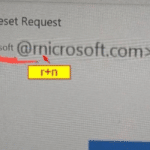In today's digital world, cybersecurity isn't just an IT concern; it's a business imperative. Yet many organisations don't consider their Security Operations Centre (SOC) until they experience a security incident. By then, they're already dealing with the consequences: data breaches, service disruptions, and damage to customer trust.
This guide explores why SOC matters for businesses of all sizes and how to manage this critical security function effectively.
Regardless of your company's size, if you maintain an online presence, you're a potential target for cybercriminals. They're looking for financial assets, customer data, or systems they can compromise and hold for ransom.
Effective SOC management delivers several critical benefits:
While having complete control over your security operations may seem appealing, establishing an internal SOC requires:
For many organisations, these requirements represent significant challenges in terms of both resources and expertise.
A security solution such as this offers a more accessible alternative, providing:
With a managed service, you gain comprehensive security coverage without the overhead of building and maintaining the necessary infrastructure and team.
A properly functioning SOC performs several essential activities as part of daily operations:
When security events occur, such as opening a malicious attachment, unauthorised login attempts, or suspicious processes, the SOC will:
Beyond reactive measures, SOCs also perform proactive security functions:

A comprehensive SOC team typically includes several specialised roles:
These aren't general IT positions—they require specialised cybersecurity training and expertise. With a managed SOC service, you gain access to all these skills without recruitment and retention challenges.
When evaluating managed SOC providers, look for these key differentiators:
Security threats don't observe business hours. Adequate protection requires 24/7 monitoring and response capabilities, regardless of time of day or holidays.
The most effective security approaches combine artificial intelligence with human analysis, ensuring genuine threats are identified and addressed while minimising false positives.
Your SOC should scan all potential attack vectors—email, files, cloud applications, network traffic, and endpoints—to provide complete protection.
Clear, actionable reporting helps you understand security events, their potential impact, and the steps taken to address them.
A quality SOC service should support your regulatory compliance requirements, whether for Cyber Essentials, ISO27001, or other frameworks.
Many small business leaders believe their organisations are too small to attract cybercriminals. However, statistics tell a different story:
In today's environment, cybersecurity isn't optional—it's an essential component of business operations, similar to accounting, insurance, or website maintenance.
When discussing a managed SOC model, several misconceptions frequently arise:
Antivirus solutions primarily detect known threats based on signatures. A SOC identifies sophisticated attacks that evade traditional security tools.
Past security may be a matter of luck rather than robust protection. As threats evolve, organisations need proactive security measures.
Most IT teams are focused on maintaining operations and lack the specialised expertise and bandwidth for comprehensive security monitoring.
The cost of a security breach—including operational disruption, data loss, and regulatory penalties—far exceeds the investment in preventive security measures.
You likely need SOC services if your organisation:
If any of these factors apply to your business, implementing SOC capabilities should be a priority.
Q: What is the primary function of a SOC?
A SOC continuously inspects your digital environment and responds to security threats before they can cause significant damage.
Q: Are managed SOC services appropriate for smaller organisations?
Smaller businesses are often more vulnerable due to limited security resources, making managed services particularly valuable.
Q: How rapidly does a SOC respond to identified threats?
An effective SOC responds almost immediately when suspicious activity is detected.
Q: Will a managed SOC replace our existing IT team?
No, managed SOC provides best practices to your IT team, allowing them to focus on core business technology needs.
Q: Is a complex implementation required for SOC services?
Implementation is typically streamlined, secure, and managed remotely with minimal disruption.
The cybersecurity landscape continues to evolve, with threat actors becoming increasingly sophisticated. Organisations face a clear choice:
For most businesses, the prudent approach is clear.
Implementing effective SOC capabilities, whether in-house or through a managed service, can significantly enhance your security posture, protect critical assets, and maintain operational stability.
The time to address your organisation's security against advanced cyber threats.

